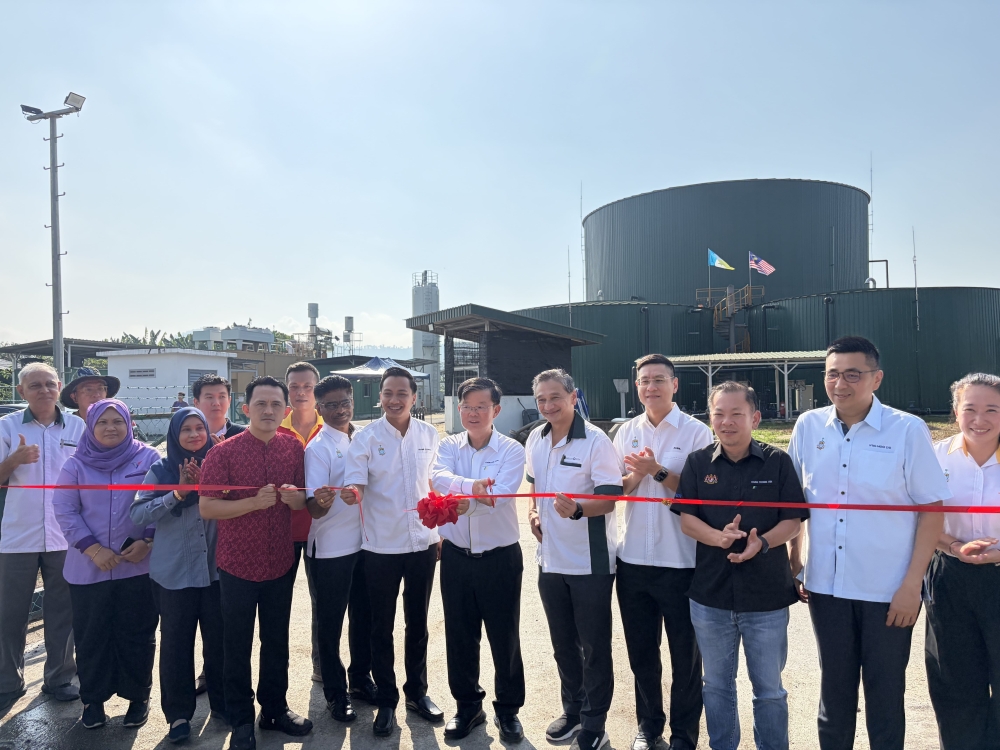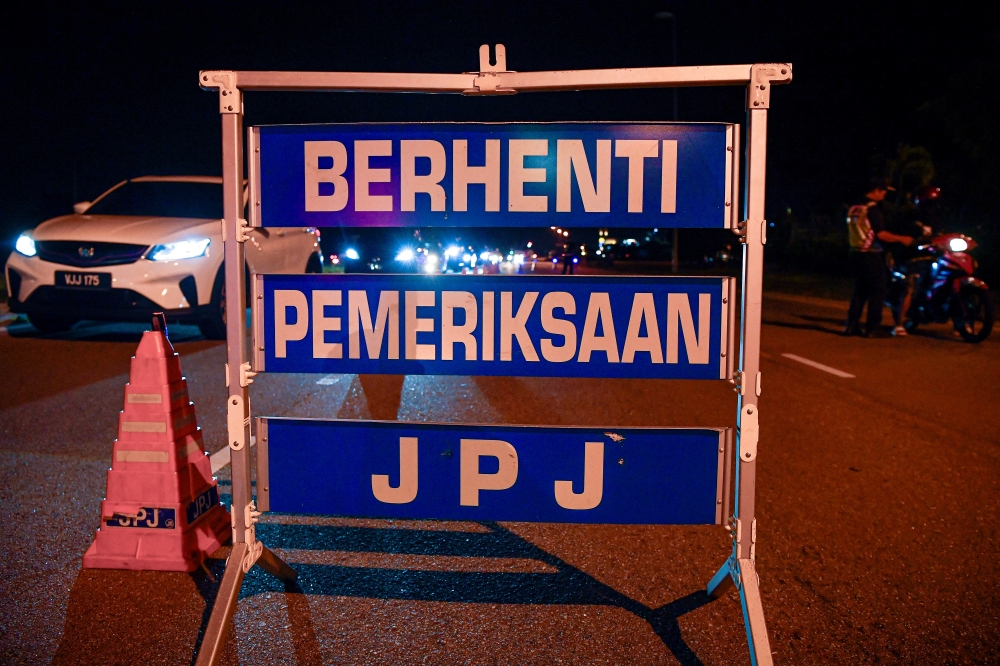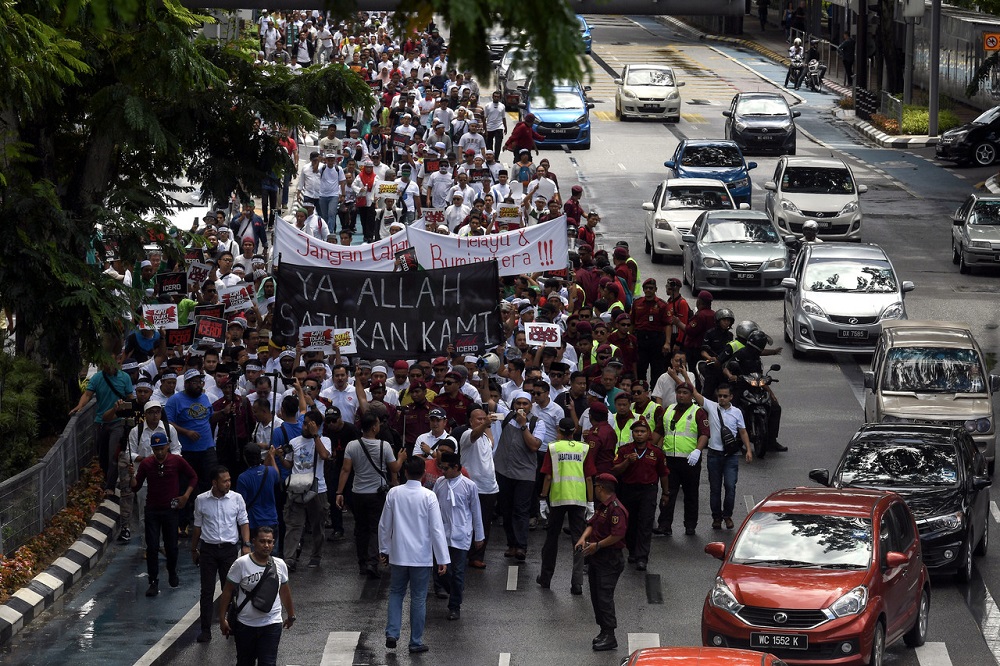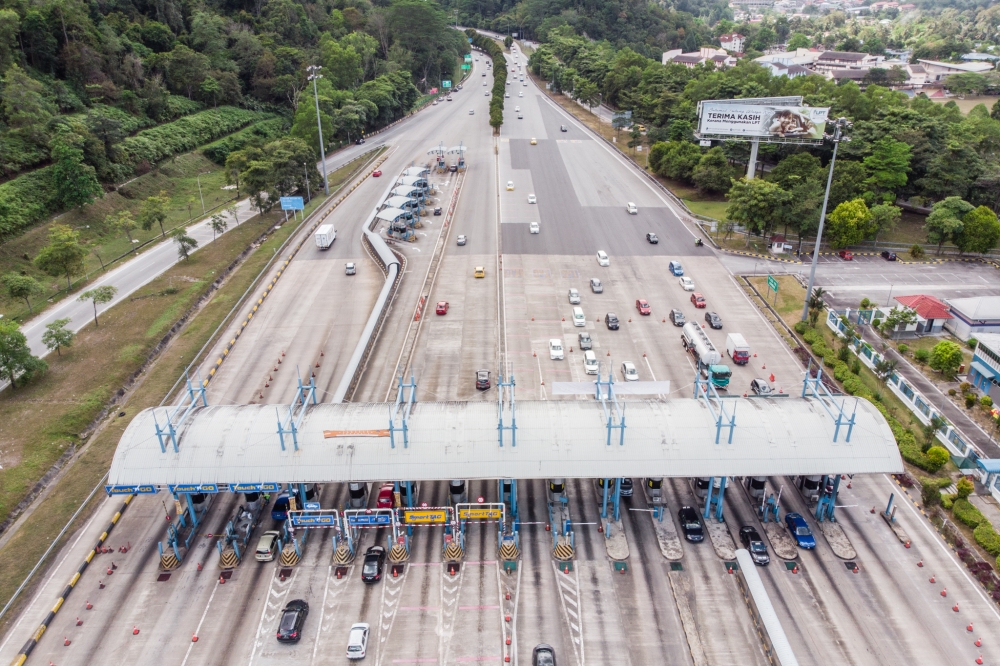KUALA LUMPUR, Nov 22 — Malaysia shares something with its neighbours Brunei and Myanmar, as well as North Korea when it comes to the hottest five-letter word of the month: ICERD.
None of them have committed to eventually complying with the United Nations' (UN) International Convention on the Elimination of All Forms of Racial Discrimination (ICERD).
If the ICERD sounds like a mouthful, just remember that it is mainly about countries agreeing to adopt policies to end racial discrimination, and to criminalise the spread of ideas based on racial superiority or hatred, among other things.
The ICERD seeks to oblige countries to ensure that everyone, regardless of race, is able to enjoy a long list of rights some may take for granted, including the right to freedom of expression, the right of peaceful assembly, the right to work, the right to housing, the right to medical care, social security, education and even the right to access places for the public's use such as restaurants, theatres and parks.
There's currently heated debate about whether the ICERD requires constitutional amendments if Malaysia were to adopt it.
Back to Malaysia and ICERD; it is currently one of 14 countries that have neither signed nor ratified the treaty.
The 14 countries include the fairly young country of South Sudan, and island nations Cook Islands, Vanuatu, the federated states of Micronesia, Marshall Islands, Kiribati, Samoa, Niue and Tuvalu.
Out of 197 countries, 179 countries have ratified, acceded or succeeded and agreed to be bound by the ICERD.
These 179 countries include Israel, which signed in 1966 and ratified the ICERD in 1979.
PAS president Datuk Seri Abdul Hadi Awang recently objected to the ICERD, which he alleged was unfair towards Islam and Malaysia's Bumiputera community, and argued that ICERD should instead be raised towards Israel and Myanmar over what he described as "cruelty" towards those of different race or religion in their countries.
Four other countries apart from the 179 — Angola, Bhutan, Nauru and Palau — have not ratified the ICERD, but have at least signed the treaty. (This indicates their willingness to consider ratifying it, and is not legally binding but obliges them to refrain from doing things that will be against the ICERD's purposes.)
Below is a quick look at where the 14 countries who have not accepted the ICERD are located:
.jpg) Malaysia's scorecard in the region
Malaysia's scorecard in the region
Continuing on the topic of international human rights treaties, it is interesting to see how well Asean countries fare.
For the ICERD, the earliest adopter within South-east Asia is the Philippines (1967), followed by Laos (1974), Vietnam (1982), Cambodia (1983), Indonesia (1999).
Thailand acceded to the ICERD in 2003, while Singapore became in November 2017 the latest within Asean to ratify it.
The Philippines, Cambodia and Indonesia share the honour of having ratified the most regionally at eight out of nine international human rights treaties, while Thailand, Laos and Vietnam ratified seven out of nine.
The treaties that these nations have yet to ratify are either those relating to the rights of migrant workers, or the protection of people from enforced disappearances such as those done or backed by the government, or both.
The rest are stragglers with Myanmar and Singapore having ratified four each, while Malaysia and Brunei ratified a mere three although the latter has signed a fourth treaty against torture.
.jpg) For the record, Malaysia has to date ratified only three core human rights treaties which are related to children, women and the disabled: Convention on the Rights of the Child (CRC); Convention on the Elimination of All Forms of Discrimination against Women (Cedaw); and Convention on the Rights of Persons with Disabilities (CRPD).
For the record, Malaysia has to date ratified only three core human rights treaties which are related to children, women and the disabled: Convention on the Rights of the Child (CRC); Convention on the Elimination of All Forms of Discrimination against Women (Cedaw); and Convention on the Rights of Persons with Disabilities (CRPD).
Malaysia has yet to ratify or even sign six others, including the ICERD, International Covenant on Civil and Political Rights (CCPR), Convention against Torture and Other Cruel, Inhuman or Degrading Treatment or Punishment (CAT).
The others unsigned and unratified are the International Covenant on Economic, Social and Cultural Rights (CESCR); International Convention on the Protection of the Rights of All Migrant Workers and Members of their Families (CMW); and International Convention for the Protection of All Persons from Enforced Disappearance (CED).
Foreign Minister Datuk Saifuddin Abdullah had in July said that Malaysia aspires to sign the remaining human rights conventions, as promised by Pakatan Harapan in its manifesto for the 14th general elections.
Malay-Muslim groups continue to oppose the government’s plan to formalise the convention, arguing that doing so will strip the Bumiputera community of its constitutional safeguards and privileges.



















